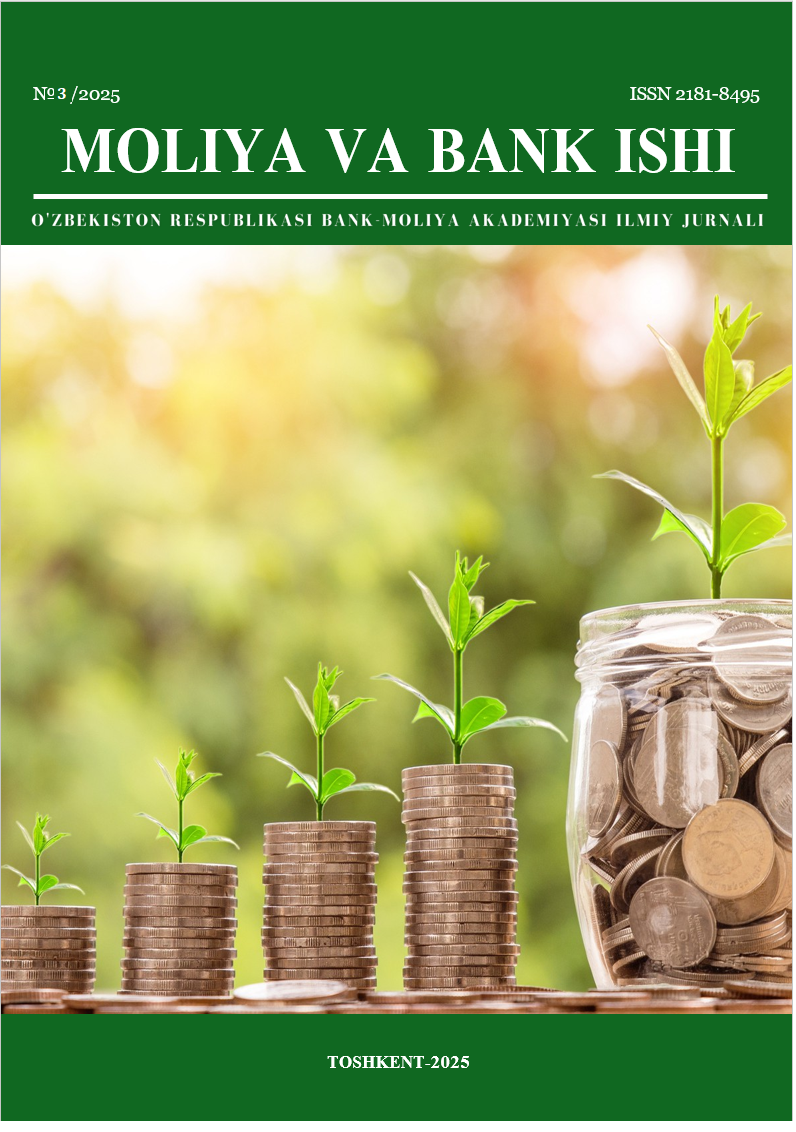
Published 2025-09-15
How to Cite
Abstract
This study provides the first empirical investigation into the relationship between Environmental, Social, and Governance (ESG) performance and bank credit risk in the Central Asian region. Utilizing a unique, hand-collected panel dataset of 32 commercial banks from Kazakhstan, Uzbekistan, Kyrgyzstan, and Tajikistan from 2015 to 2024, we examine how ESG scores influence non-performing loan (NPL) ratios. Employing both fixed-effects and System Generalized Method of Moments (GMM) models to control for endogeneity and unobserved heterogeneity, our results reveal a significant negative association between aggregate ESG performance and NPL ratios. A granular analysis of the ESG pillars demonstrates that this effect is primarily driven by robust Governance, with a secondary significant contribution from Social performance. The Environmental pillar, however, shows an insignificant relationship, suggesting its channel to credit risk is less direct in the region’s current economic structure. These findings underscore that ESG adherence, particularly strong governance and social practices, constitutes a material risk mitigation tool rather than a mere symbolic gesture. The study offers critical insights for bank managers, regulators, and international institutions, advocating for the integration of ESG factors, especially governance, into the core of prudential risk management frameworks to enhance financial stability in emerging markets.
References
- Albuquerque, R., Koskinen, Y., & Zhang, C. (2019). Corporate social responsibility and firm risk: Theory and empirical evidence. Management Science, 65(10), 4451–4469. https://doi.org/10.1287/mnsc.2018.3163
- Arayssi, M., Jizi, M., & Tabaja, H. (2020). ESG performance and bank risk: Evidence from global banks. Journal of Sustainable Finance & Investment, 10(4), 365–385. https://doi.org/10.1080/20430795.2020.1753348
- Asian Development Bank. (2023). Sustainable finance in Central Asia: Status and prospects. Manila: ADB Publications.
- Astana International Financial Centre (AIFC). (2022). Green Finance Roadmap for Kazakhstan 2022–2025. Astana: AIFC Green Finance Centre.
- Bae, K. H., Kang, J.-K., & Wang, L. (2022). Employee treatment, ESG performance, and firm value. Journal of Corporate Finance, 72, 102125. https://doi.org/10.1016/j.jcorpfin.2021.102125
- Berger, A. N., Roman, R. A., & Zomlossy, N. (2020). Do environmental, social, and governance activities affect bank performance and risk? Evidence from Europe. Journal of Banking & Finance, 117, 105836. https://doi.org/10.1016/j.jbankfin.2020.105836
- Boubaker, S., Nguyen, D. K., & Rjiba, H. (2023). ESG performance and bank loan quality: International evidence. Journal of Financial Stability, 64, 101082. https://doi.org/10.1016/j.jfs.2022.101082
- Cai, D., Cui, Y., & Jo, H. (2021). ESG and bank loan loss provisioning. Journal of Business Ethics, 174(2), 397–418. https://doi.org/10.1007/s10551-020-04630-4
- Central Bank of Uzbekistan (CBU). (2021). Guidelines on green banking principles. Tashkent: CBU.
- European Bank for Reconstruction and Development (EBRD). (2023). Transition Report 2023: Greening the financial sector in Central Asia. London: EBRD.
- Eccles, R. G., Ioannou, I., & Serafeim, G. (2014). The impact of corporate sustainability on organizational processes and performance. Management Science, 60(11), 2835–2857. https://doi.org/10.1287/mnsc.2014.1984
- Freeman, R. E. (1984). Strategic management: A stakeholder approach. Boston: Pitman.
- Friede, G., Busch, T., & Bassen, A. (2015). ESG and financial performance: Aggregated evidence from more than 2000 empirical studies. Journal of Sustainable Finance & Investment, 5(4), 210–233. https://doi.org/10.1080/20430795.2015.1118917
- Godfrey, J. M., Hodgson, A., & Holmes, S. (2021). ESG disclosure and the cost of equity capital: Evidence from European banks. Accounting and Finance, 61(3), 3375–3402. https://doi.org/10.1111/acfi.12721
- Goss, A., & Roberts, G. S. (2011). The impact of corporate social responsibility on the cost of bank loans. Journal of Banking & Finance, 35(7), 1794–1810. https://doi.org/10.1016/j.jbankfin.2010.12.002
- International Monetary Fund (IMF). (2023). Kazakhstan: Financial Sector Assessment Program—Technical Note on Climate-Related Financial Risks. Washington, DC: IMF.
- Khan, M., Serafeim, G., & Yoon, A. (2016). Corporate sustainability: First evidence on materiality. The Accounting Review, 91(6), 1697–1724. https://doi.org/10.2308/accr-51344
- Margolis, J. D., & Walsh, J. P. (2003). Misery loves companies: Rethinking social initiatives by business. Administrative Science Quarterly, 48(2), 268–305. https://doi.org/10.2307/3556659
- United Nations Development Programme (UNDP). (2024). ESG integration in Central Asian financial systems: Challenges and opportunities. Almaty: UNDP Regional Bureau for Europe and the Commonwealth of Independent States.
- World Bank. (2024). Central Asia economic update: Navigating climate and credit risks. Washington, DC: World Bank Group.
